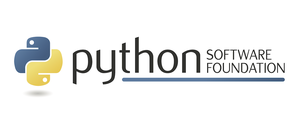123 lines
4.5 KiB
Plaintext
123 lines
4.5 KiB
Plaintext
|
|
Metadata-Version: 2.1
|
|||
|
|
Name: requests
|
|||
|
|
Version: 2.31.0
|
|||
|
|
Summary: Python HTTP for Humans.
|
|||
|
|
Home-page: https://requests.readthedocs.io
|
|||
|
|
Author: Kenneth Reitz
|
|||
|
|
Author-email: me@kennethreitz.org
|
|||
|
|
License: Apache 2.0
|
|||
|
|
Project-URL: Documentation, https://requests.readthedocs.io
|
|||
|
|
Project-URL: Source, https://github.com/psf/requests
|
|||
|
|
Platform: UNKNOWN
|
|||
|
|
Classifier: Development Status :: 5 - Production/Stable
|
|||
|
|
Classifier: Environment :: Web Environment
|
|||
|
|
Classifier: Intended Audience :: Developers
|
|||
|
|
Classifier: License :: OSI Approved :: Apache Software License
|
|||
|
|
Classifier: Natural Language :: English
|
|||
|
|
Classifier: Operating System :: OS Independent
|
|||
|
|
Classifier: Programming Language :: Python
|
|||
|
|
Classifier: Programming Language :: Python :: 3
|
|||
|
|
Classifier: Programming Language :: Python :: 3.7
|
|||
|
|
Classifier: Programming Language :: Python :: 3.8
|
|||
|
|
Classifier: Programming Language :: Python :: 3.9
|
|||
|
|
Classifier: Programming Language :: Python :: 3.10
|
|||
|
|
Classifier: Programming Language :: Python :: 3.11
|
|||
|
|
Classifier: Programming Language :: Python :: 3 :: Only
|
|||
|
|
Classifier: Programming Language :: Python :: Implementation :: CPython
|
|||
|
|
Classifier: Programming Language :: Python :: Implementation :: PyPy
|
|||
|
|
Classifier: Topic :: Internet :: WWW/HTTP
|
|||
|
|
Classifier: Topic :: Software Development :: Libraries
|
|||
|
|
Requires-Python: >=3.7
|
|||
|
|
Description-Content-Type: text/markdown
|
|||
|
|
License-File: LICENSE
|
|||
|
|
Requires-Dist: charset-normalizer (<4,>=2)
|
|||
|
|
Requires-Dist: idna (<4,>=2.5)
|
|||
|
|
Requires-Dist: urllib3 (<3,>=1.21.1)
|
|||
|
|
Requires-Dist: certifi (>=2017.4.17)
|
|||
|
|
Provides-Extra: security
|
|||
|
|
Provides-Extra: socks
|
|||
|
|
Requires-Dist: PySocks (!=1.5.7,>=1.5.6) ; extra == 'socks'
|
|||
|
|
Provides-Extra: use_chardet_on_py3
|
|||
|
|
Requires-Dist: chardet (<6,>=3.0.2) ; extra == 'use_chardet_on_py3'
|
|||
|
|
|
|||
|
|
# Requests
|
|||
|
|
|
|||
|
|
**Requests** is a simple, yet elegant, HTTP library.
|
|||
|
|
|
|||
|
|
```python
|
|||
|
|
>>> import requests
|
|||
|
|
>>> r = requests.get('https://httpbin.org/basic-auth/user/pass', auth=('user', 'pass'))
|
|||
|
|
>>> r.status_code
|
|||
|
|
200
|
|||
|
|
>>> r.headers['content-type']
|
|||
|
|
'application/json; charset=utf8'
|
|||
|
|
>>> r.encoding
|
|||
|
|
'utf-8'
|
|||
|
|
>>> r.text
|
|||
|
|
'{"authenticated": true, ...'
|
|||
|
|
>>> r.json()
|
|||
|
|
{'authenticated': True, ...}
|
|||
|
|
```
|
|||
|
|
|
|||
|
|
Requests allows you to send HTTP/1.1 requests extremely easily. There’s no need to manually add query strings to your URLs, or to form-encode your `PUT` & `POST` data — but nowadays, just use the `json` method!
|
|||
|
|
|
|||
|
|
Requests is one of the most downloaded Python packages today, pulling in around `30M downloads / week`— according to GitHub, Requests is currently [depended upon](https://github.com/psf/requests/network/dependents?package_id=UGFja2FnZS01NzA4OTExNg%3D%3D) by `1,000,000+` repositories. You may certainly put your trust in this code.
|
|||
|
|
|
|||
|
|
[](https://pepy.tech/project/requests)
|
|||
|
|
[](https://pypi.org/project/requests)
|
|||
|
|
[](https://github.com/psf/requests/graphs/contributors)
|
|||
|
|
|
|||
|
|
## Installing Requests and Supported Versions
|
|||
|
|
|
|||
|
|
Requests is available on PyPI:
|
|||
|
|
|
|||
|
|
```console
|
|||
|
|
$ python -m pip install requests
|
|||
|
|
```
|
|||
|
|
|
|||
|
|
Requests officially supports Python 3.7+.
|
|||
|
|
|
|||
|
|
## Supported Features & Best–Practices
|
|||
|
|
|
|||
|
|
Requests is ready for the demands of building robust and reliable HTTP–speaking applications, for the needs of today.
|
|||
|
|
|
|||
|
|
- Keep-Alive & Connection Pooling
|
|||
|
|
- International Domains and URLs
|
|||
|
|
- Sessions with Cookie Persistence
|
|||
|
|
- Browser-style TLS/SSL Verification
|
|||
|
|
- Basic & Digest Authentication
|
|||
|
|
- Familiar `dict`–like Cookies
|
|||
|
|
- Automatic Content Decompression and Decoding
|
|||
|
|
- Multi-part File Uploads
|
|||
|
|
- SOCKS Proxy Support
|
|||
|
|
- Connection Timeouts
|
|||
|
|
- Streaming Downloads
|
|||
|
|
- Automatic honoring of `.netrc`
|
|||
|
|
- Chunked HTTP Requests
|
|||
|
|
|
|||
|
|
## API Reference and User Guide available on [Read the Docs](https://requests.readthedocs.io)
|
|||
|
|
|
|||
|
|
[](https://requests.readthedocs.io)
|
|||
|
|
|
|||
|
|
## Cloning the repository
|
|||
|
|
|
|||
|
|
When cloning the Requests repository, you may need to add the `-c
|
|||
|
|
fetch.fsck.badTimezone=ignore` flag to avoid an error about a bad commit (see
|
|||
|
|
[this issue](https://github.com/psf/requests/issues/2690) for more background):
|
|||
|
|
|
|||
|
|
```shell
|
|||
|
|
git clone -c fetch.fsck.badTimezone=ignore https://github.com/psf/requests.git
|
|||
|
|
```
|
|||
|
|
|
|||
|
|
You can also apply this setting to your global Git config:
|
|||
|
|
|
|||
|
|
```shell
|
|||
|
|
git config --global fetch.fsck.badTimezone ignore
|
|||
|
|
```
|
|||
|
|
|
|||
|
|
---
|
|||
|
|
|
|||
|
|
[](https://kennethreitz.org) [](https://www.python.org/psf)
|
|||
|
|
|
|||
|
|
|